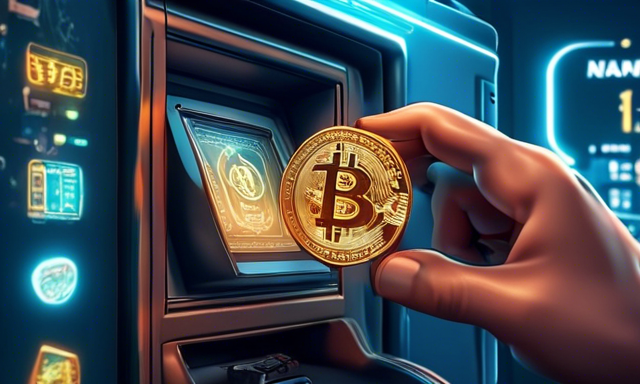Understanding the Risks of Bitcoin ATMs 💰
Bitcoin ATMs provide a straightforward option for purchasing or liquidating cryptocurrencies. However, these machines are increasingly becoming targets for hackers and deceitful schemes. Heightened by their inherent vulnerabilities, it’s crucial for users to remain vigilant about security threats when engaging with these devices.
The Cybersecurity Concerns Surrounding Bitcoin ATMs 🔒
According to a report from CNBC on September 8, the risk of hacking is particularly significant for Bitcoin ATMs. While they function similarly to conventional ATMs, the substantial value held in cryptocurrencies makes them attractive to cybercriminals.
Timothy Bates, a cybersecurity expert at the University of Michigan, highlights that many Bitcoin ATMs utilize outdated security protocols. He points out that these machines can fall prey to malware attacks, enabling hackers to either seize private keys or tamper with transactions. Additionally, vulnerabilities in network security might permit criminals to intercept communications between the ATM and its server, facilitating data breaches.
The Alarming Rise in Bitcoin ATM Scams 📈
The report from CNBC noted a troubling increase in crimes associated with Bitcoin ATMs. The Federal Trade Commission (FTC) has warned the public about this escalating threat, as there has been an astonishing 1,000% rise in scams linked to these machines since the year 2020.
According to Joe Dobson, a principal analyst at Mandiant, the inherent decentralized nature of bitcoin complicates the ability to trace or recover funds after fraudulent transactions are made. This characteristic makes these scams particularly difficult to combat.
Risks Unique to Bitcoin ATMs ⚠️
Bitcoin ATMs pose unique challenges that do not exist with traditional cash ATMs. Many of these machines ask users to enter sensitive personal information, such as identification or Social Security numbers, to comply with regulations known as Know Your Customer (KYC). Alice Frei from Outset PR stresses that this personal data could be compromised if an ATM is hacked, and offenders frequently exploit the anonymity of cryptocurrencies to transfer stolen funds without being detected.
Real-Life Scenarios Reveal Vulnerabilities 💔
In Ohio, convenience store owner Sai Patel shared a cautionary tale about a close call involving an elderly patron. This woman almost fell victim to a scam where a fraudster impersonating Elon Musk convinced her to invest her life savings into a Bitcoin ATM. Patel intervened just in time, preventing the transaction from occurring and safeguarding her financial resources.
Recommendations for Safer Transactions 🛡️
Frei encourages individuals to be cautious and to refrain from sending cryptocurrency to unfamiliar wallets. Utilizing platforms like Chainabuse can assist users by allowing them to verify the trustworthiness of a transaction through checking the risk score associated with the recipient’s wallet.
Bitcoin Depot, the largest operator of Bitcoin ATMs in the U.S. with over 8,000 machines, aims to bolster user security. CEO Brandon Mintz emphasized that their kiosks are designed with security in mind, though he also noted the importance of users remaining alert to potential scams and fraudulent activities.
Hot Take: Be Informed and Vigilant! 🔍
As Bitcoin ATMs continue to grow in popularity, awareness of the associated dangers is essential. Staying informed about the potential risks can prevent you from becoming a victim of scams. Remember, always verify transactions and protect your personal information when using these machines. Knowledge and vigilance will serve as your best defenses against cyber threats in this ever-evolving landscape of cryptocurrency.





 By
By
 By
By
 By
By
 By
By

 By
By